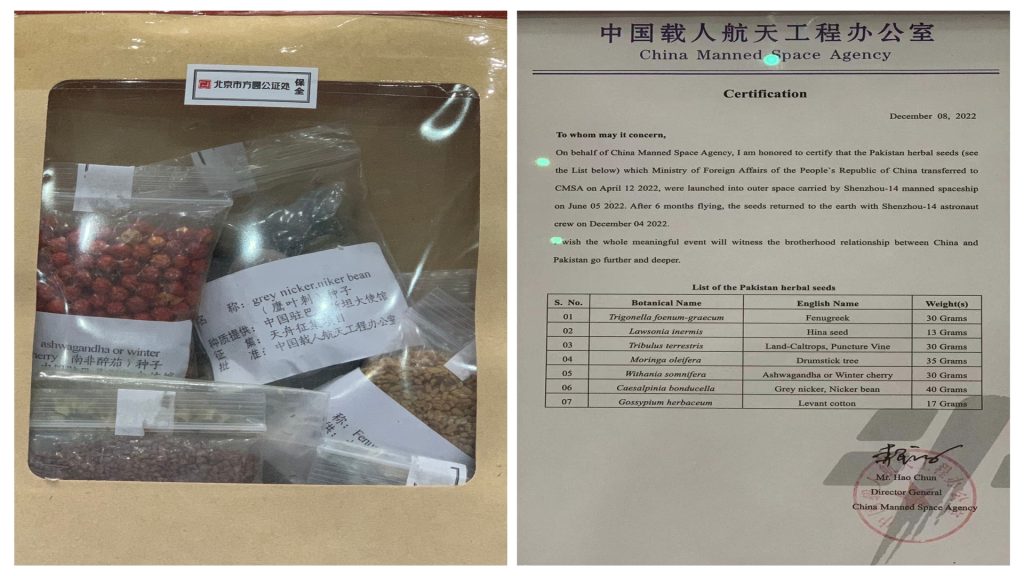(Staff Report):-
After six months in China’s spacescraft under the first-ever Sino-Pak ‘Seeds in Space’ project, seven kinds of Pakistani medicinal seeds returned to the earth and their motherland.
The seeds, three kinds provided by the International Centre for Chemical and Biological Sciences (ICCBS), University of Karachi and four by Hamdard University, have made history as the first to aboard the Chinese space station and opened a new chapter for S&T cooperation between China and Pakistan.
Space-bred varieties have proved to be able to perform better in terms of production and resistance, and the return of seeds from space is only the start.
After Pakistan’s medicinal seeds return to the earth, Pakistan and China will conduct joint research on their genetic stability, material basis, effectiveness and safety by comparing the seeds on board with their mother seeds on the earth to screen out new medicinal materials with higher quality and higher yield, Dr. Jiang Ning, Deputy Secretary-General of Sino-Pakistan Cooperation Center on Traditional Chinese Medicine, National Administration of Traditional Chinese Medicine, China, told China Economic Net in an interview.
How is that achieved? Scientific study shows that microgravity, cosmic radiation and very low temperatures outside the space station can induce genetic mutations that could make the plants more productive and resilient to climate fluctuations resulting from climate change.
So far, China, the third country in the world after the US and Russia to achieve satellite breeding in space, has cultivated more than 200 new space-bred varieties with an annual planting area of 2-3 million hectares. Among them, wheat variety Luyuan 502 has increased production by 11% more than ordinary varieties and manifested better resistance to drought, diseases and pests.
“There is no way to transform plant seeds in a set direction, but it is possible to achieve our intended outcomes by sending them to space. For medicinal plants, we hope they can grow better with stronger resistance, survival rate, and efficacy. All can be achieved via genetic mutation in space”, said Dr. Wang Yan, Assistant Professor of Chemical and Biological Sciences, University of Karachi.





